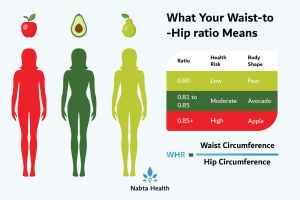Screening for ADHD

Before a diagnosis of ADHD can be made, doctors and mental health professionals must gather information through various screening tools. The screening process can involve clinical interviews, observations from teachers and parents, psychological testing, behavior checklists, and other diagnostic tools. Your child will likely need to visit the pediatrician multiple times. The pediatrician will want to hear your observations regarding your child’s behavior and the difficulties that you have observed your child experiencing.
Since the characteristic behaviors associated with ADHD are usually first evident when children begin school, teachers are often the first to notice that a child is struggling with hyperactivity, inattention, and impulsivity. For this reason, the pediatrician may want to examine reports from teachers, other caregivers, or school counselors.
Your child’s pediatrician may also conduct a physical exam to rule out any medical causes for the symptoms. Since ADHD may have a genetic basis, the pediatrician will likely examine your family’s medical history. Discovering other family members who have had ADHD or similar symptoms can be important in making a diagnosis.
After the pediatrician has heard a detailed history of your child’s behaviors, conducted a physical exam, and taken a family history, the next step in the screening process is to ask a series of structured questions and administer a variety of checklists and questionnaires. This will help to identify the specific issues your child is having. It is likely that your child’s teacher will be asked to complete a questionnaire and clinical screening instruments. In addition to your child’s pediatrician, other mental health professionals may be involved in administering these diagnostic tools and performing an evaluation. Examples of rating scales used to screen children for ADHD include:
The Vanderbilt Assessment Scale: This is an assessment tool that reviews the symptoms of ADD/ADHD as outlined in the DSM or the Diagnostic and Statistical Manual of Mental Disorders. It also screens children for other conditions that have similar symptoms to ADD/ADHD, including depression, anxiety, and oppositional-defiant disorder.
SNAP-IV: This rating scale includes a list of 90 items that are related to the symptoms of ADD/ADHD, aggression, and oppositional-defiant disorder.
SWAN Rating Scale: This assessment tool contains 30 items and asks parents and teachers to compare the child’s behavior to other children of the same age. In a similar manner to other rating scales, the SWAN rating scale screens children for symptoms of ADD/ADHD and oppositional-defiant disorder.
Sources:
- American Academy of Child and Adolescent Psychiatry
- ADHD Resource Center.
American Academy of Pediatrics - Confirming Diagnosis of ADHD.
American Academy of Pediatrics - First Steps Towards Evaluation.
University of Washington - Caring for Children with ADHD: A Resource Toolkit for Clinicians.
Powered by Bundoo®










